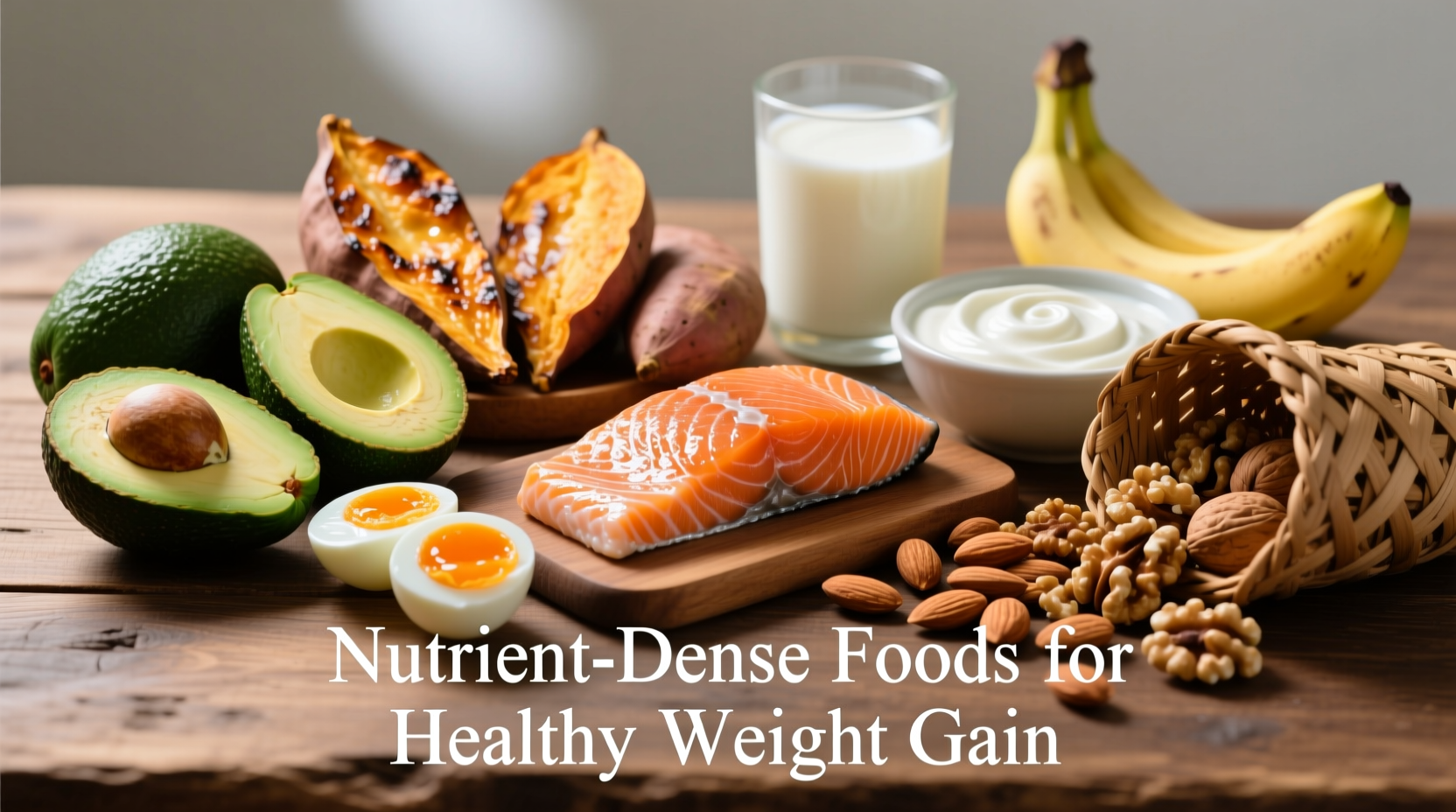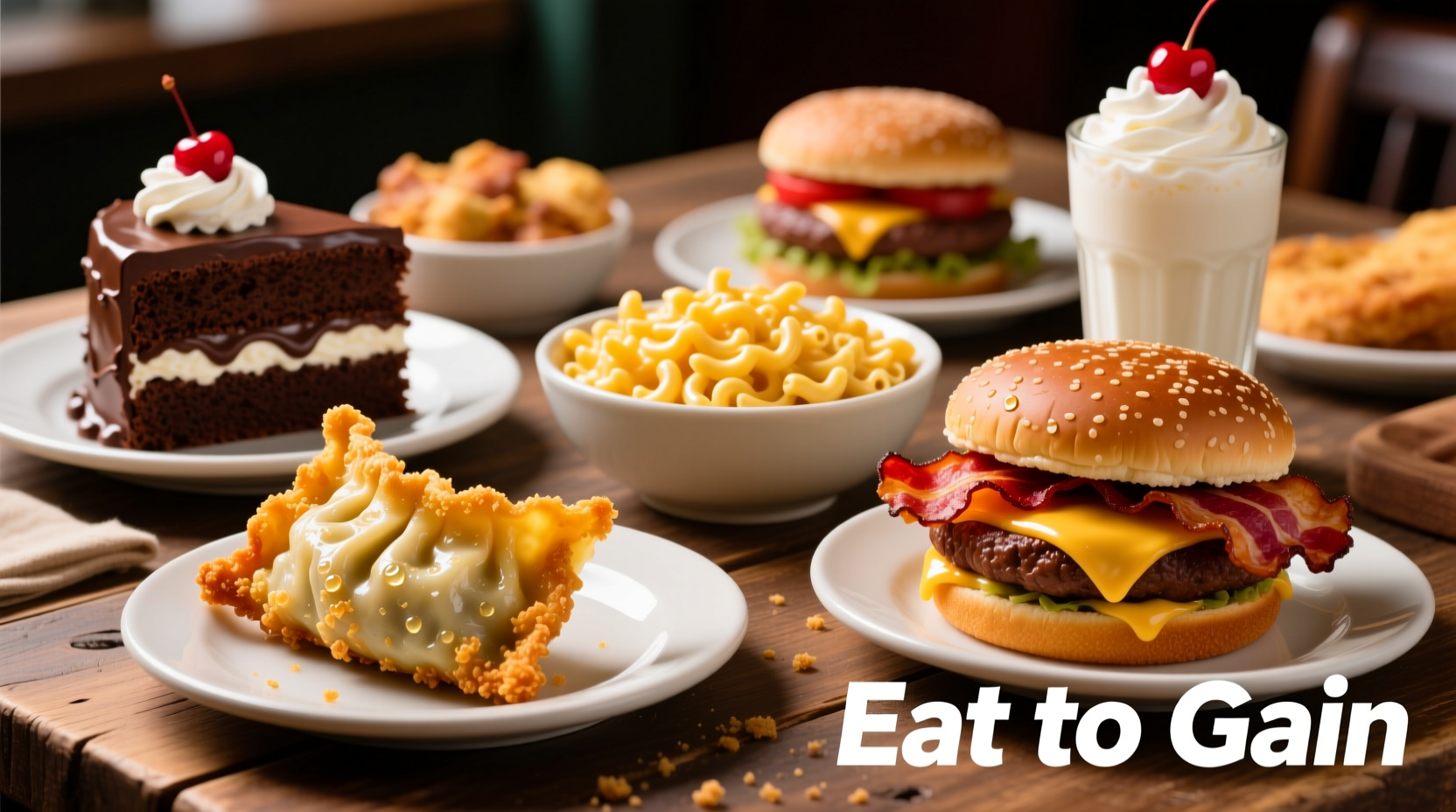Many people search for what food to eat to get fat when they actually need guidance on healthy weight gain. The terminology matters—building muscle and improving health should be the goal, not simply adding body fat. This guide provides science-backed strategies for sustainable weight gain that supports overall wellbeing.
Understanding Healthy Weight Gain vs. Unhealthy Fat Accumulation
When exploring what food to eat to gain weight healthily, it's crucial to distinguish between beneficial weight gain and harmful fat accumulation. The Centers for Disease Control and Prevention (CDC) emphasizes that BMI below 18.5 indicates underweight status, which carries health risks including weakened immunity and osteoporosis. However, simply eating junk food to get fat creates different dangers like insulin resistance and cardiovascular issues.
| Approach | Healthy Weight Gain | Unhealthy Fat Gain |
|---|---|---|
| Primary Foods | Nuts, avocados, lean proteins, whole grains | Sugary drinks, fried foods, processed snacks |
| Weekly Gain | 0.5-2 pounds | 3+ pounds |
| Body Composition | Muscle development | Excess fat storage |
| Health Impact | Improved strength, immunity | Increased disease risk |
Who Should Consider Weight Gain Strategies
Not everyone searching for what food to eat to get fat should pursue weight gain. According to the National Institutes of Health (NIH), weight gain is medically appropriate for:
- Individuals with BMI below 18.5 (underweight category)
- Athletes building muscle mass
- People recovering from illness or surgery
- Those experiencing unintentional weight loss
Consult your healthcare provider before starting any weight gain plan, especially if you have underlying health conditions. The Academy of Nutrition and Dietetics recommends personalized approaches rather than generic how to gain weight fast food list solutions.
Nutrient-Dense Foods for Sustainable Weight Gain
When selecting what food to eat to gain weight healthily, prioritize these nutrient-packed options that deliver calories with maximum nutritional value:
Healthy Fats for Calorie Boosting
Avocados (300 calories each), nuts (almonds provide 160 calories per ounce), and seeds (chia seeds offer 470 calories per ounce) deliver essential fatty acids while increasing calorie intake. The American Heart Association recommends these unsaturated fats over processed alternatives when implementing healthy weight gain meal plan strategies.

Protein Sources for Muscle Development
Lean proteins like salmon (200 calories per 3oz serving), Greek yogurt, and legumes support muscle growth rather than fat storage. Research published in the Journal of the International Society of Sports Nutrition shows that combining protein intake with strength training yields optimal results for those following what food to eat to build muscle mass protocols.
Complex Carbohydrates for Energy
Whole grains like quinoa (220 calories per cooked cup), sweet potatoes, and oats provide sustained energy and fiber. These form the foundation of effective calorie-dense healthy foods approaches, preventing the blood sugar spikes associated with refined carbohydrates.
Practical Implementation Strategies
Successfully executing what food to eat to get fat in a healthy way requires thoughtful planning:
Sample Daily Meal Framework
- Breakfast: Oatmeal with nuts, seeds, and banana (600 calories)
- Lunch: Quinoa bowl with avocado, chicken, and roasted vegetables (700 calories)
- Snack: Greek yogurt with nut butter (350 calories)
- Dinner: Salmon with sweet potato and asparagus (650 calories)
- Evening: Handful of mixed nuts and dried fruit (300 calories)
Avoiding Common Pitfalls
Many people make mistakes when searching for how to gain weight without exercise. While possible, combining nutrition with strength training ensures gained weight becomes muscle rather than fat. The American College of Sports Medicine recommends at least two weekly strength sessions when following healthy weight gain strategies for underweight individuals.
When to Seek Professional Guidance
If you've tried implementing what food to eat to get fat recommendations without success, consult a registered dietitian. They can help identify underlying issues like malabsorption or metabolic conditions. The Academy of Nutrition and Dietetics maintains a directory of specialists who create personalized nutrient-dense foods for weight gain plans based on individual health profiles.
Frequently Asked Questions
How many extra calories do I need for healthy weight gain?
Most adults need 300-500 extra calories daily to gain 0.5-1 pound weekly. The National Institute of Diabetes and Digestive and Kidney Diseases recommends gradual increases to avoid excessive fat storage while pursuing healthy weight gain.
Can I gain weight healthily without gaining fat?
Yes, by combining nutrient-dense calorie sources with strength training. Research shows that protein intake of 1.6-2.2g per kg of body weight, distributed throughout the day, supports muscle development rather than fat accumulation during weight gain efforts.
What are the best snacks for healthy weight gain?
Nut butters with apple slices, trail mix with nuts and dried fruit, Greek yogurt with granola, and avocado toast provide calorie-dense options with nutritional value. These satisfy what food to eat to gain weight needs without relying on processed alternatives.
How long does healthy weight gain typically take?
Sustainable healthy weight gain occurs at 0.5-2 pounds weekly. Rapid gain often leads to disproportionate fat accumulation. The CDC notes that consistent, gradual progress yields better long-term health outcomes than quick fixes when implementing healthy weight gain strategies.











 浙公网安备
33010002000092号
浙公网安备
33010002000092号 浙B2-20120091-4
浙B2-20120091-4